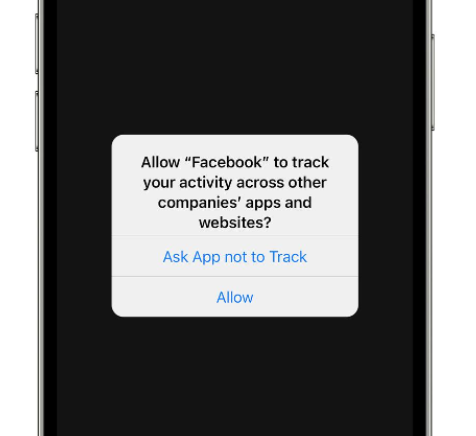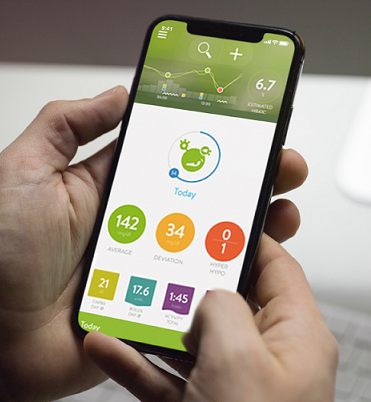With the release of iOS 14.5, the iPhone software asks customers whether they want apps to follow their digital behavior. While it may appear to be a minor move, it has already caused ripples throughout the app economy, notably at Facebook and Google, the internet’s two largest ad companies.
Do you want a smartphone app to track your digital activities across multiple apps and websites? It’s a question most apps have never bothered to ask. Apple is changing that.
You know, that you are constantly being tracked while you use applications and services. Furthermore, the information gathered about you can be collected and sold online without your consent.
Until now, Facebook and other apps could automatically perform surveillance on iPhones unless users took the time and trouble to disable it in their settings, which is a procedure that few people bother to go through.
The growth of the internet gave rise to tracking systems that began simply enough — what websites you visited — and grew into a massive surveillance system in which nearly all web action is monitored, recorded, and sold. This includes activities on smartphone apps, and most of the time, tracking systems were not asked for permission.
What does it mean for the smartphone that apps must request permission to track users?
It has to do with IDFA, the Identifier for Advertisers. Think of it as a phone license plate. The IDFA is a sequence of characters that iPhone apps can use to monitor specific activities without knowing a user’s name. Apple now requires app developers to ask for your permission before utilizing your IDFA in any app on your iPhone or iPad. Apple now requires app developers to ask for your permission before utilizing your IDFA in any app on your iPhone or iPad. Correspondingly to previous privacy prompts, the question pops up for each app.
App Tracking Transparency, or ATT, is Apple’s abbreviation for the update.
First, make sure your iPhone’s software is updated to the newest version of iOS
Once that’s done, you have 2 main options. The first is the use of pop-ups. When you’re in certain apps, the iPhone will ask if you want to allow the app to track your location. If you say no, the iPhone will prevent that app from accessing your IDFA data. If you say yes, the app will be able to collect data about your internet activities.

The app developer will lose access to the IDFA if you choose not to allow an app to track. It also informs the app that the user has declined to be followed in other ways, such as through their email address.
The second option is to disable it for all apps at once. Return to the „Settings” app, but this time tap „Privacy,” then „Tracking,” and then „Allow Apps to Request to Track.” Toggle „Allow Apps to Request to Track” to off. Apps won’t be able to ask you to track your activities as a result.
What’s interesting, if you set an app not to track and it continues to track you anyway, the developer risks being removed from the App Store.
I’m not sure why I’d want to turn this on?
You could notice fewer advertising following you around your phone or based on your online or offline behaviour.
Some apps, according to privacy advocates, collect data without needing to and profit from it. They also suggest that less tracking would have a positive impact on the Internet economy.
What’s the deal with Facebook?
Facebook is not pleased. The corporation relies on user monitoring to offer targeted ads, and this shift could make it more difficult for Facebook, which owns four of the most popular iPhone apps. Facebook told investors recently that Apple’s change will be a „headwind” for its ad business.
The social media platform has attempted to spin the situation in a positive light, claiming that people prefer tailored adverts over random ones and that targeted marketing promotes small businesses. It has chastised Apple for the pop-ups’ style and wording, and Facebook has stated that it will show users its own „educational screen” pop-up before providing Apple’s alert.
- Changes in App Advertising – The ‘SKAdNetwork’ API was launched by Apple in May of 2018. One of the primary motivations for developing this approach was to improve the privacy of customers who downloaded mobile apps. Now that the year is 2021, the SKAdNetwork API is no longer just an idea. It’s a fact that will have an impact on how you use Facebook Ads. When it comes to campaign administration, for example, each Facebook Ads account will be limited to a maximum of nine campaigns and five ad sets per campaign. Furthermore, for iOS 14 App Install and App Events campaigns, lift measurement will be unavailable. Last but not least, event reporting may take up to three days after an app has been loaded.
- Changes in Mobile Web Advertising – For web attribution, Apple established the PCM (Private Click Measurement) protocol. This protocol will make a significant contribution to limiting the data that corporations and platforms have access to.
Let’s use an example to better grasp PCM:
Let’s say an iOS 14 user sees an ad on Instagram and is sent to a web browser to make a purchase. This event would now be lost and improperly ascribed because of PCM. It will also be difficult to track users in different geographical locations. If a user in Poland is offered an ad for a company based in the United States but is then diverted to the local version of the website based on their location, the purchase will not be correctly tracked. Facebook’s Aggregated Event Management solution will be released to address this issue. If an occurrence similar to the ones stated above occurs, this tool will assist in correct sales attribution.
Aside from Facebook’s, the ad industry’s reaction hasn’t been overly panicked. Apple gave the industry plenty of time to prepare, and marketers couldn’t exactly say they opposed transparency outright. Given regulatory and consumer scrutiny of data in general, there may have been a sense that a crackdown was unavoidable.
Will people become irritated by the constant barrage of pop-ups?
Perhaps. This is dependable on how Apple implements the function so that users aren’t bombarded with notifications, which would be in addition to the pop-ups they presently receive while using a web browser or in other situations.

You might also be interested in articles regarding:
Data Security
Does this have any effect on phones that use Android phones?
Not yet. While Android users can change their identity or opt-out of targeted adverts, they still don’t get the same reminders and prompts as Apple users.
Max Schrems, a European privacy campaigner, submitted a complaint about the Android identification recently, asking French authorities to examine user tracking, although any result could take a long time. Meanwhile, Google is experimenting with a less intrusive method of ad targeting on web browsers.
Can apps still collect data on iPhone users?
Yes, data gathering is still permitted if the app’s privacy policy expressly states so. The changes only affect whether app developers share data they collect with third parties or combine their data with third-party data to help target advertisements. Apple has added privacy „nutrition labels” to its App Store, allowing consumers to see what information apps gather.
The pros and cons
Apple is providing people the chance to pick between two solutions, each of which has its own set of advantages.
If users do not opt out, they may receive more relevant adverts in their social media feeds or apps.
Users can keep more of their info private if they opt-out. Companies like Facebook have expressed concern that this could degrade the user experience of their products. Despite Apple’s decision to let consumers opt out of tracking, advertising firms will find new ways to obtain user data.
Hey Apple: Don’t stop there
At a time when our personal data is being collected in mass by the free services we use, tools like iOS 14.5’s ATT are a welcome addition. People can choose to enable this ad targeting to take place.
We applaud Apple’s strong stance on user privacy and security, and we love that privacy is referred to as a „basic human right” by the company.
But Apple’s compromises in China?
According to a New York Times investigation, Apple has put its Chinese customers’ data at risk and supported the Chinese government’s censorship.
- Apple’s customer data is stored on servers operated by the Chinese government
The data center is physically controlled and operated by Chinese government employees. Apple agreed to keep the digital keys that unlock the information of its Chinese clients in those data centers. After China refused to approve it, Apple abandoned the encryption technology it employs in other data centers. - Apple now shares client data with the Chinese government
Apple designated Guizhou-Cloud Big Data, or GCBD, as the legal owner of its Chinese customers’ iCloud data. GCBD is a firm run by the Guizhou provincial government. Chinese authorities are now requesting consumer data from GCBD rather than Apple. - Apple proactively removes apps to please Chinese officials
Apple has established an internal system that rejects or removes apps that it believes may violate Chinese regulations. - Tens of thousands of iPhone apps have vanished
According to a Times study, over 55,000 active apps have vanished from Apple’s App Store in China since 2017, with the majority still available in other countries. Over 35,000 of those apps were games, which in China require regulatory permission. - Apple blocked apps from a Communist Party critic
Apple disputed The Times’ information, saying that some developers removed their own apps from China…
Summary
With the changes and industry shockwaves caused by the latest update on privacy, let’s hope more Big Tech companies follow Apple’s lead. And that the corporation, as one of the world’s most powerful influencers, continues to work on re-empowering user agency in new ways. Because nobody gets up every day and thinks: „I can’t wait to see some nice ads today.”

Mobile Development
fireup.pro is proficient in creating mobile apps. Cooperating with us, you can release the MVP within a month. We’ll use the latest technology to make it shine. Create your own native mobile app for Android / iOS that will conquer the hearts of your users. With our experience, you can meet your business goals, and get to market faster!
